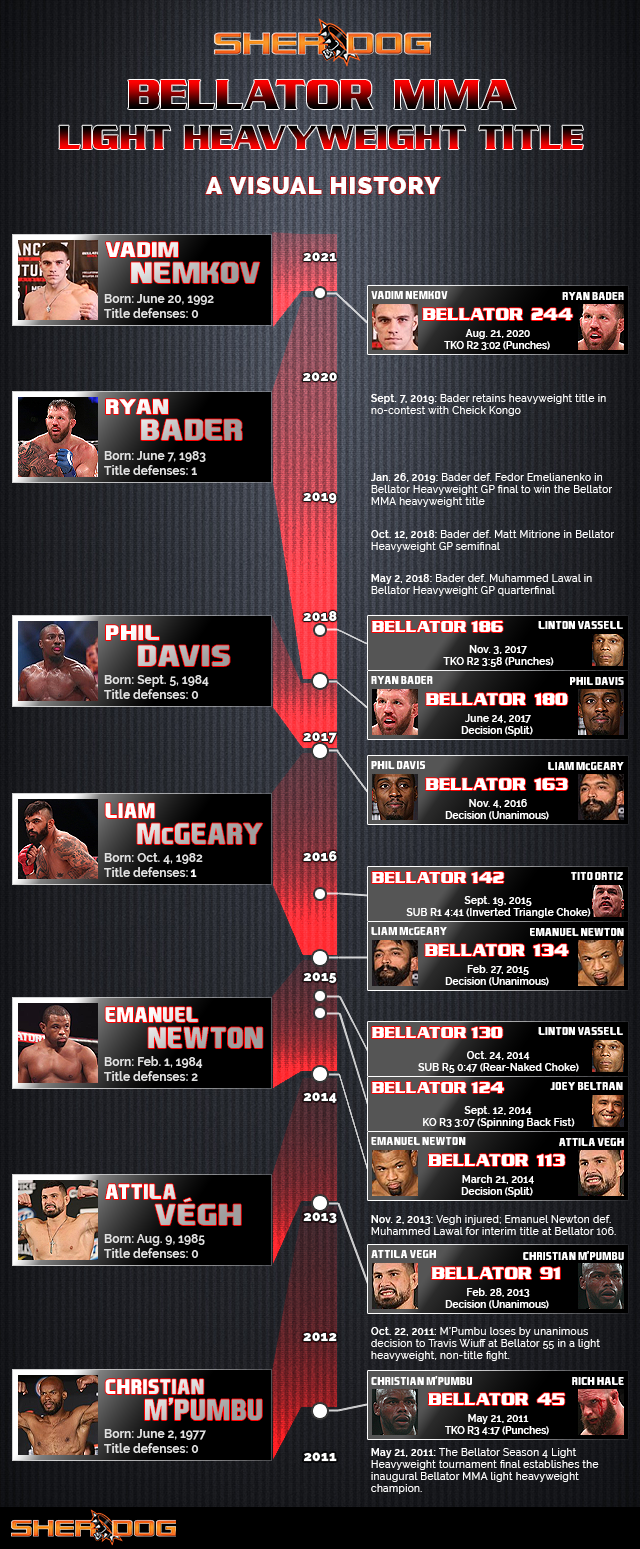All of a sudden, the once frozen wasteland known as the Bellator MMA light heavyweight division is heating up.
Things became even more interesting when Bellator signed former Ultimate Fighting Championship middleweight contender Yoel Romero and the returning Anthony Johnson. The influx of big-name talent, which coincided with UFC champ Jon Jones relinquishing his title and plotting a move to heavyweight, led some observers to speculate that Bellator might actually have the stronger 205-pound division of the two.
The final infusion of energy into the long-frozen division came with the recent announcement of a light heavyweight Grand Prix, set to begin in April. In addition to both of the recent high-profile free agents, the eight-man field includes Nemkov, Bader, former champ Phil Davis and former UFC titleholder Lyoto Machida. Bader’s entry may have surprised those who expected the 37-year-old to focus on his heavyweight hardware, and Nemkov’s presence guarantees that the belt will not be sitting idle on his shelf, as his title will be on the line each time he fights in the tournament, as is customary for Bellator. While it’s anyone’s guess what will happen to the belt once the Grand Prix kicks off, it is guaranteed that something will happen, and for the long-neglected Bellator light heavyweight title, that’s good news indeed.
Here is the 10-year history of the Bellator light heavyweight title and the times it was won, lost or defended. It tells the story of a division breaking out of a long period of stagnation and entering a dynamic new age with a young champion at its head.

Ben Duffy/Sherdog.com illustration

